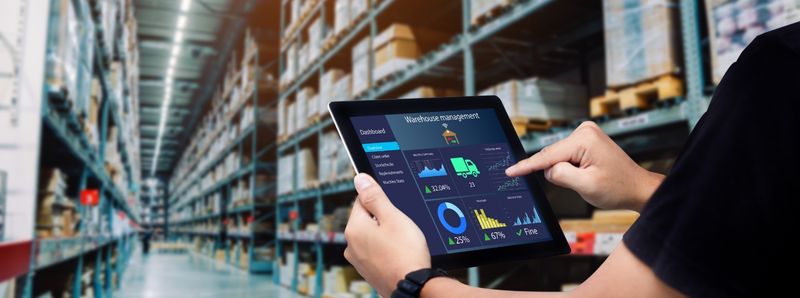Quality controls in Mexico: how they work in the manufacturing industry

Published 02/05/2025
Mexico has become a global benchmark in the manufacturing industry thanks to its strategic location, competitive costs, and, above all, the implementation of robust quality control systems. Foreign companies operating in the country find not only a skilled workforce but also standardized processes that ensure the quality and safety of their products. Below, we explore how quality controls work in Mexico, their importance, which systems are used, and why they are key to the success of manufacturing operations, especially for foreign companies.
What is the role of quality systems in Mexican manufacturing?
In Mexican manufacturing, quality systems play a strategic role: they provide the framework that enables companies to produce goods efficiently, consistently, and competitively. Their role goes beyond simply detecting errors: they focus on defect prevention and process optimization.
In today’s globalized environment, where Mexico plays a key role in international supply chains, having robust quality systems is essential, as they allow Mexican companies to:
- Meet international standards
- Ensure full production traceability
- Facilitate product exports to demanding markets
- Minimize waste, rework, and returns
- Enhance the company’s reputation
- Increase operational efficiency
- Standardize processes and optimize resource use
Importance of quality systems in Mexico
In a competitive and globalized environment, quality is a strategic differentiator. For companies operating in Mexico, having well-implemented quality controls means:
- Increased trust from international clients
- Reduced legal and regulatory risks
- Continuous improvement in processes and products
- Higher productivity and fewer reworks
Quality also drives innovation by encouraging the constant analysis of processes and the use of advanced technological tools for early detection of failures or deviations.
Quality systems in Mexico
Mexico has adopted and adapted various quality systems that are pillars of its manufacturing industry. These systems, ranging from international standards to management philosophies, aim to ensure excellence at every stage of production.
ISO standards
ISO (International Organization for Standardization) standards are widely adopted by the Mexican manufacturing industry. These standards provide a systematic framework for quality management, based on principles such as customer focus, continuous improvement, and evidence-based decision-making.
In Mexico, ISO 9001 is particularly relevant, as it establishes the requirements for a quality management system (QMS). Obtaining this certification demonstrates a company’s commitment to quality and customer satisfaction.
Industry-specific standards
In addition to ISO standards, many industries have their own specific standards and certifications. For example:
- ISO/TS 16949 in automotive
- AS9100 in aerospace
- ISO 13485 in medical devices
- GMP (Good Manufacturing Practices) in food and pharmaceuticals
Lean Manufacturing and Six Sigma
Many manufacturers in Mexico combine lean manufacturing methodologies with Six Sigma to reduce waste, improve efficiency, and optimize production processes.
Lean Manufacturing focuses on eliminating waste (time, materials, effort) to maximize customer value. Six Sigma, on the other hand, is a data-driven methodology aimed at dramatically reducing defects and process variability to achieve near-perfect quality. Many Mexican companies combine both philosophies to achieve superior efficiency and quality without sacrificing production speed.
Regulatory compliance
In addition to voluntary standards, companies must comply with official Mexican standards (NOM) and the regulatory requirements of destination countries, such as the FDA in the U.S. or the CE mark in Europe. This involves rigorous controls and precise documentation.
Good Manufacturing Practices (GMP)
Particularly important in the food, pharmaceutical, and medical device industries, GMPs are a set of guidelines that ensure products are manufactured consistently and under controlled conditions, reducing production-related risks.
GMPs cover everything from production environment control to staff training, cleanliness, traceability, storage, and documentation.
Quality management and advanced tools
In Mexico, systems such as SPC (Statistical Process Control), FMEA (Failure Mode and Effects Analysis), and ERP systems with integrated quality modules are used to allow for efficient and digitized process monitoring.
Product quality
Beyond processes, the quality of the product itself is the result of all implemented systems. This includes durability, performance, safety, and functionality testing to ensure the final product meets all user expectations.
Environmental standards and sustainability
More and more manufacturers are integrating environmental quality standards such as ISO 14001, focused on reducing ecological impact, managing waste, and optimizing resources in line with global sustainability trends.
Sustainability has become a key component of quality, reflecting a commitment not only to the product, but also to the planet and society.
Quality control processes in production
Quality controls in Mexico are not limited to final inspection. They are implemented throughout the entire production chain:
- Supplier evaluation. Inputs and raw materials are verified to ensure they meet required specifications before being accepted. This includes supplier audits, quality testing, and certifications.
- In-process inspection. During manufacturing, statistical controls, manual or sensor-based reviews, destructive testing, and variability analysis are applied to identify failures at early stages.
- Final inspection. Once the product is complete, visual, functional, and safety checks are performed to ensure it meets customer expectations and legal requirements. Only products that pass these tests are approved for shipment.
- Traceability and documentation. Traceability involves keeping detailed records of each stage of production, from raw material to finished product. Proper documentation allows for the quick identification of any issue’s origin and enables efficient corrective actions.
- Corrective and preventive actions (CAPA). When a defect is identified—whether in raw materials, processes, or the final product—corrective actions address the current issue, while preventive actions aim to ensure the same error does not occur in the future. This drives continuous improvement and strengthens the quality system.
These processes ensure that products manufactured in Mexico maintain international quality standards and remain globally competitive.
Are you considering moving your production to Mexico?
At American Industries, we have over 50 years of experience helping foreign companies establish operations in Mexico through a shelter model that ensures legal compliance, quality processes, certifications, and operational efficiency.
Contact us today at start@americanindustriesgroup.com or visit our website at americanindustriesgroup.com to discover how our services can facilitate your entry into the Mexican market with the highest quality standards.
If you would like to find out more about this topic or are interested in receiving a complimentary business case analysis for your operation in Mexico, please fill out this form or contact us at:
US toll-free: +1 (877) 698 3905
CN Toll-free: +1 (400) 076 8899
Attention hours from M to F 9:00 - 18:00 CST
Please note that we do not accept job applications here. If you are interested in applying for a position, please visit the following link: https://www.americanindustriesgroup.com/jobs/



